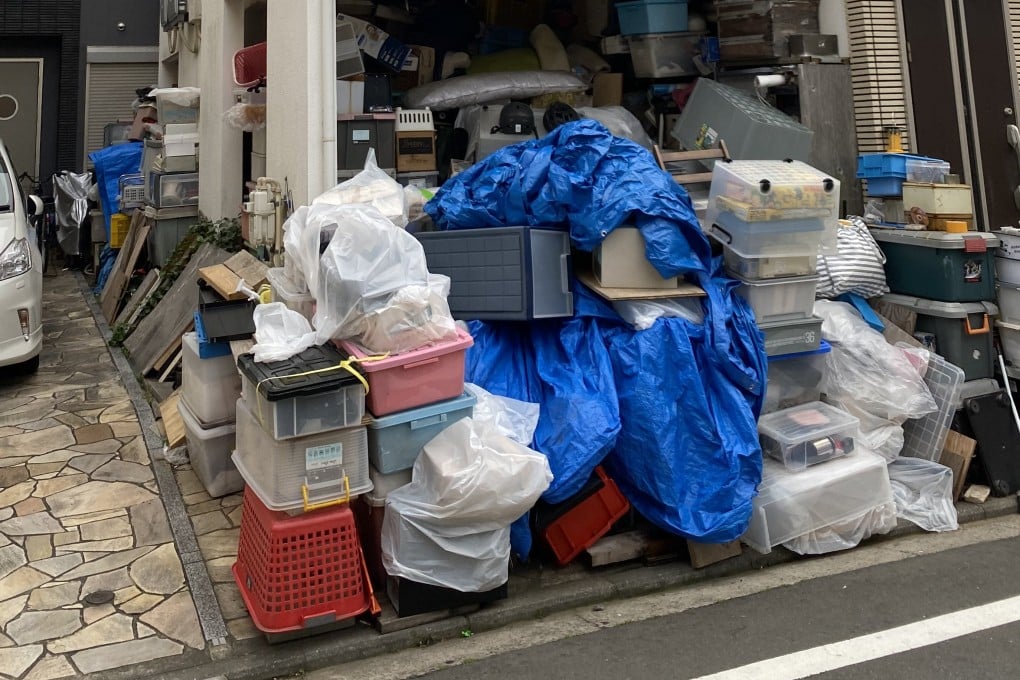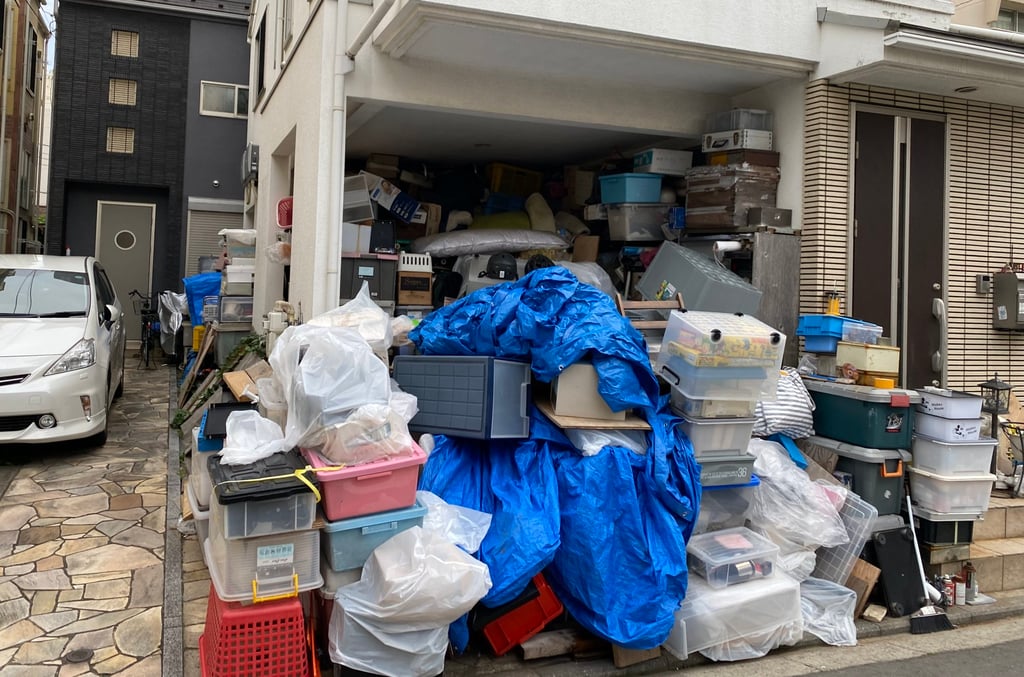Japan’s growing problem with ‘trash homes’ prompts questions about lack of social support
- ‘Gomi-yashiki’ are homes that have rubbish spilling onto the streets and surrounding properties, attracting pests, and causing problems for local governments
- With more than 5,200 trash houses across the country, the problem has been called a ‘national concern’ by one Tokyo newspaper

One specific three-storey family home in Yokohama’s Isogo district has boxes, furniture and plastic bags stacked to the roof of the built-in garage. Crates are also piled haphazardly on the pavement, along with shopping baskets, folding chairs, tarpaulins, and scattered pieces of wood. The debris even encroaches onto the neighbour’s parking space.
That dwelling is one of more than 5,200 trash houses identified as being of particular concern to local communities, according to the first ever nationwide study of the problem conducted by the Environment Ministry. The largest number of properties overflowing with rubbish were in Tokyo, with 880 cases, followed by Aichi Prefecture in central Japan with 538 problem properties and 341 in Chiba Prefecture, east of Tokyo.

While a separate study in 2017 reported problems from 250 municipalities nationwide, the ministry’s report indicates 661 municipalities are currently struggling with how to encourage – or force – homeowners to tidy up.
An editorial in the Yomiuri newspaper on Monday called on the national government to pass new legislation to address what “has now become a national concern”, rather than leaving the matter to local authorities.
Local residents complain of foul odours emanating from some properties inundated with trash, especially during the hot summer months, while others become breeding grounds for vermin such as cockroaches and rats. Elsewhere, untended gardens can spill over into neighbouring properties and there is even the possibility of older, wooden homes collapsing under the weight of rubbish piled up inside.
The ministry’s study received replies from more than 1,700 municipalities, of which 101 said they had local ordinances in place requiring homeowners keep their properties tidy. While 114 have established programmes to help people whose hoarding habits have got out of hand, including providing financial support or having municipal workers dispose of excess trash.
There is an increasing number of people who need support in their daily lives for any number of reasons